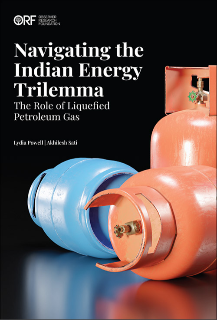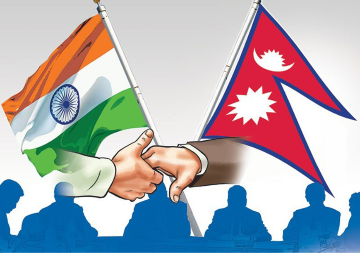
The recent notification of Ministry of Mines (MoM)’s National Mineral Policy 2019 (NMP), replacing the dated mineral legislation of 2008, is both appropriate and timely. For an entire decade, India’s mining sector has grappled with multiple challenges including illegal and unscientific mining, environmental and statutory process violations, increased cases of fatalities in mine sites and lack of investments in the sector. Mining curbs in Goa and Karnataka along with mine closures in top producing states, Odisha and Jharkhand have led to reduced employment opportunities for the mineral sector professionals and associated contract personnel; as a result, hundreds of young geology and mining graduates face a bleak future.
Furthermore, the trade deficit due to the import of commodities like gold, diamond, iron ore, coal and manganese was about INR 3 lakh crores in 2018. Even though these commodities have significant resource potential in India, yet there has been no significant mineral exploration or reported mineral discovery for almost a decade. In stark contrast, the global mineral sector has continued to witness significant growth and investment.
Against this backdrop, the NMP 2019 was expected to be an ambitious statement of intent to revitalise India’s minerals sector, that can catalyse sustained economic growth. However, the new policy does very little to reform the country’s mineral sector, especially in the context of changing global scenario.
NMP 2019 was expected to be an ambitious statement of intent to revitalise India’s minerals sector, that can catalyse sustained economic growth. However, the new policy does very little to reform the country’s mineral sector, especially in the context of changing global scenario
In its vision statement, the NMP 2019 states that the "exploration, extraction and management of minerals have to be guided by national goals and perspectives, to be integrated into the overall strategy of the country's economic development." While the statement fulfils the sector’s economic mandate, it continues to lack a focus on the future of India's minerals security and the fundamental challenge that the sector must address for contributing to India’s economic growth.
In line with the NMP 2019’s key performance indicator – and the goal to double its sectoral contribution to the GDP in next seven years, it is imperative for India to strengthen and secure its mineral resource base. India has significant geological potential for bulk mineable commodities such as iron ore, coal, limestone and manganese that are required for infrastructure development. It also has great potential for rare new age technology commodities such as lithium, rare earth, niobium, tantalum, vanadium, cobalt, and titanium for the development of technology products. However, in the absence of major explorations and discoveries of these bulk mineable commodities, there has not been any significant changes to their inventory base for decades. On the other hand, while India offers a large market for new age technology commodities, currently, these commodities are mostly imported. This is because the tech commodities are not only rare and challenging to discover, but also need proprietary processing, beneficiation and metallurgical technologies and an available downstream market as incentives for their exploration and development.
Therefore, the new policy should have reflected a clear intent to encourage the development of the entire value chain of new age minerals and acquire intellectual property on their extraction and downstream product development, while following the highest global standards of sustainable development. A prudent road map for India’s mineral security and growth would have also ensured a globally competitive investment regime to secure international investments in the entire value chain.
A prudent road map for India’s mineral security and growth would have also ensured a globally competitive investment regime to secure international investments in the entire value chain
Currently, exploration and mining of minerals are going through many process changes for energy and cost optimisation and improvements in safety across the world using Industry 4.0 tools and technologies. Large mining companies such as Rio Tinto, BHP Billiton, Barrick Gold, Newmont have started to collaborate with product and technology service suppliers to design and plan a “Mine of the Future.” Given the changing global scenario, India must encourage potential leaders in the mineral services sector in the country to create intellectual properties on innovative tools and technologies, which through created on a domestic resource base, could provide a model for securing international assets. The new policy however, does not recognise the mineral services sector, which has a significant role to play in sectoral development.
Indian mining industry, which operates in a unique ecosystem having large population as stakeholders in areas surrounded by pristine ecology. Ensuring environmental sustainability through responsible mining, while improving performance standards, is therefore a major development and policy priority of the mining sector. However, India’s mining industry has faced severe indictment from the judiciary and civil society with regards to environmental and community management. The new policy should have guided performance standards and outlined mechanisms for innovative leading practices in the areas of climate change mitigation, water security management, restoration of severely degraded land, air, water as well health and safety.
Unfortunately, NMP 2019 at best appears to be a random and ad-hoc collation of wish list of multitudes of representations that the committee received from various stakeholders of the industry. At best it’s a lazy status quo script that has failed to serve the sector’s desired objective.
The views expressed above belong to the author(s). ORF research and analyses now available on Telegram! Click here to access our curated content — blogs, longforms and interviews.



 The recent notification of Ministry of Mines (MoM)’s National Mineral Policy 2019 (NMP), replacing the dated mineral legislation of 2008, is both appropriate and timely. For an entire decade, India’s mining sector has grappled with multiple challenges including illegal and unscientific mining, environmental and statutory process violations, increased cases of fatalities in mine sites and lack of investments in the sector. Mining curbs in Goa and Karnataka along with mine closures in top producing states, Odisha and Jharkhand have led to reduced employment opportunities for the mineral sector professionals and associated contract personnel; as a result, hundreds of young geology and mining graduates face a bleak future.
Furthermore, the trade deficit due to the import of commodities like gold, diamond, iron ore, coal and manganese was about INR 3 lakh crores in 2018. Even though these commodities have significant resource potential in India, yet there has been no significant mineral exploration or reported mineral discovery for almost a decade. In stark contrast, the global mineral sector has continued to witness significant growth and investment.
Against this backdrop, the NMP 2019 was expected to be an ambitious statement of intent to revitalise India’s minerals sector, that can catalyse sustained economic growth. However, the new policy does very little to reform the country’s mineral sector, especially in the context of changing global scenario.
The recent notification of Ministry of Mines (MoM)’s National Mineral Policy 2019 (NMP), replacing the dated mineral legislation of 2008, is both appropriate and timely. For an entire decade, India’s mining sector has grappled with multiple challenges including illegal and unscientific mining, environmental and statutory process violations, increased cases of fatalities in mine sites and lack of investments in the sector. Mining curbs in Goa and Karnataka along with mine closures in top producing states, Odisha and Jharkhand have led to reduced employment opportunities for the mineral sector professionals and associated contract personnel; as a result, hundreds of young geology and mining graduates face a bleak future.
Furthermore, the trade deficit due to the import of commodities like gold, diamond, iron ore, coal and manganese was about INR 3 lakh crores in 2018. Even though these commodities have significant resource potential in India, yet there has been no significant mineral exploration or reported mineral discovery for almost a decade. In stark contrast, the global mineral sector has continued to witness significant growth and investment.
Against this backdrop, the NMP 2019 was expected to be an ambitious statement of intent to revitalise India’s minerals sector, that can catalyse sustained economic growth. However, the new policy does very little to reform the country’s mineral sector, especially in the context of changing global scenario.
 PREV
PREV



